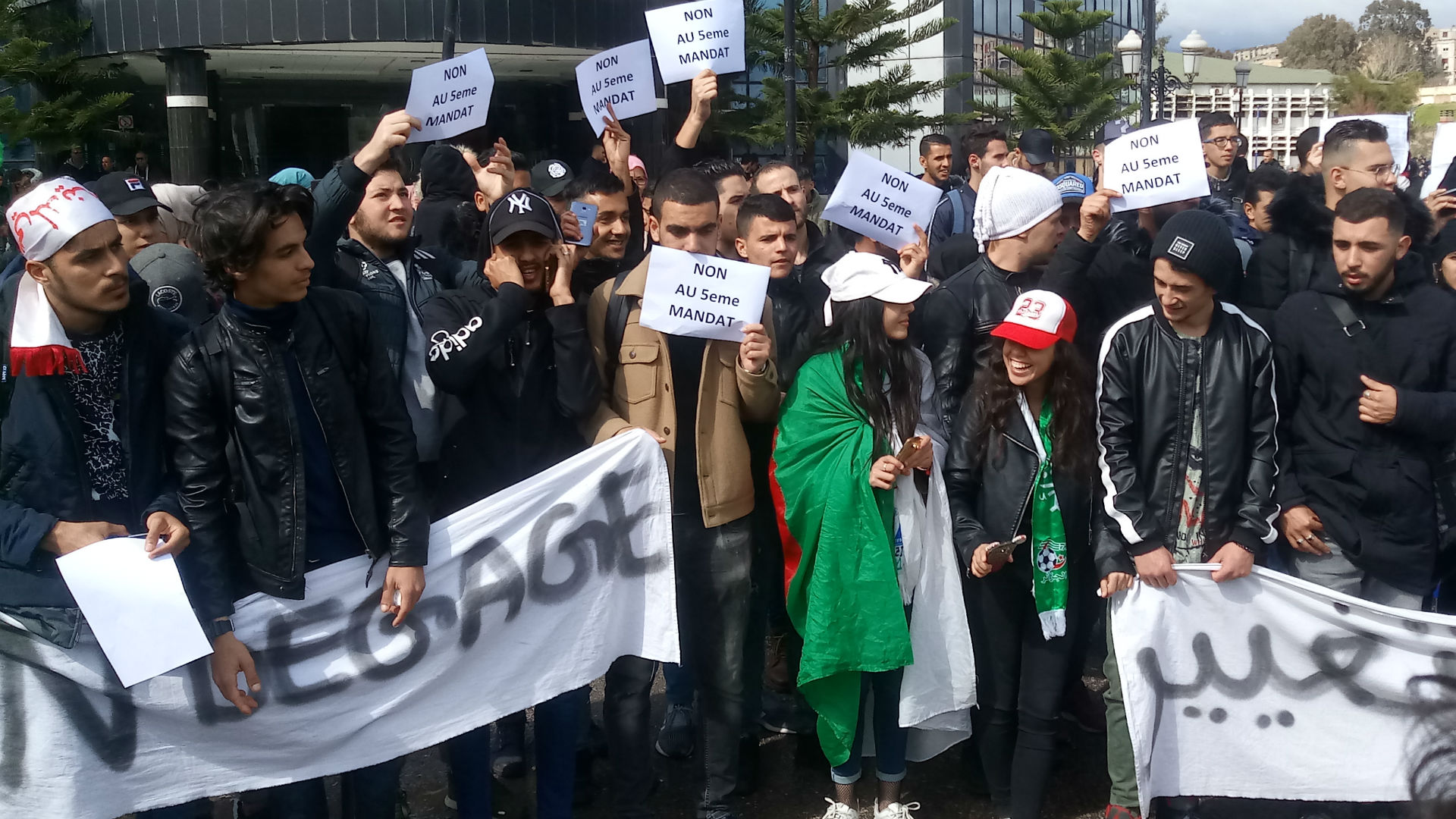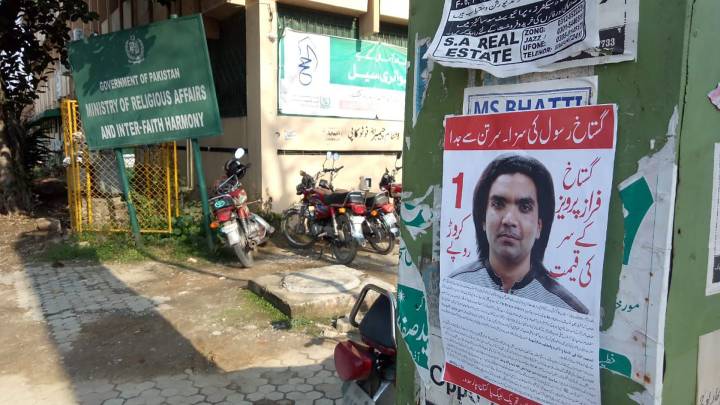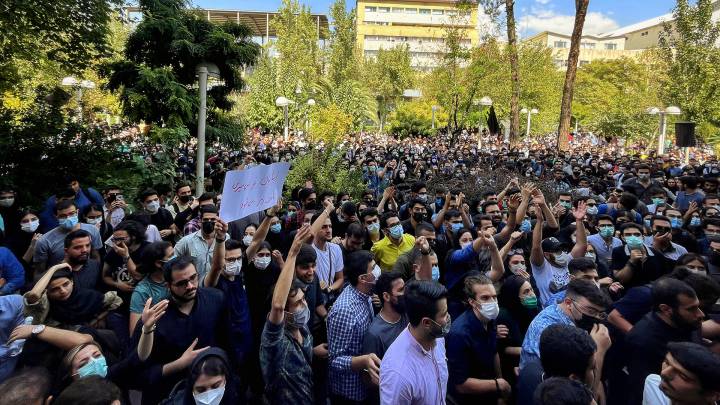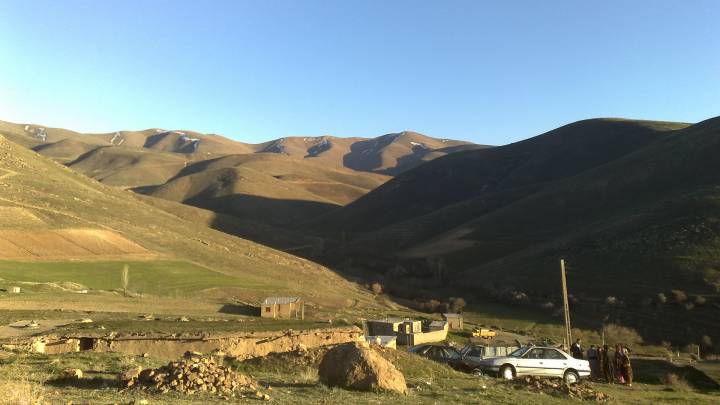After a year of protests, bans on assembly were imposed in Algeria in March 2020 in order to contain the pandemic. Journalist Lyas Hallas explains why the Hirak is now back on the streets – and what the protest movement is till lacking.
zenith: On February 19, president Abdelmadjid Tebboune announced the dissolution of parliament and called for new elections. In addition, journalist Khaled Drareni, arrested in March 2020 for documenting the protests, and other political prisoners were released. How did this happen?
Lyas Hallas: This measure and the release of a few dozen prisoners is meant to placate the protest movement. Tebboune is trying to get the protesters on his side. But given the mobilisation of the Hirak on the streets last week, this political offer does not seem to convince many people. The demands of the last two years were emphatically repeated during the recent protest marches.
The measures to contain the pandemic stopped the protest marches in March 2020. The virus is still not defeated, yet demonstrations are taking place again.
The activists who had demonstrated every Friday the year before acted very responsibly last year. They decided to pause the demonstrations to contain the spread of the virus. But if you compare the official numbers of infected people in Algeria today with those in neighbouring countries or elsewhere in the world, the situation here is comparatively unproblematic. But the government still uses the virus to scare people. To persecute, arrest, and harass activists and journalists – the situation has worsened during the pandemic. More and more activists feel the restrictions are unjustified. This is why a month ago, the first demonstrations against the night-time curfew took place, and last week demonstration marches on the occasion of the second anniversary of the Hirak movement were held in 30 places across the country.
How has the Algerian government changed since the beginning of the protests and especially since Abdelaziz Bouteflika resigned in April 2019?
Contested elections took place in December 2019, with Abdelmadjid Tebboune emerging as the winner. Personally, I see no change in the government since Bouteflika's resignation: at the end of the day, the same people are still in power and there is still a deficit of legitimacy. Tebbounne's election was boycotted by 80 % of the electorate, which also explains the public anger. People are governed by a president elected by a minority who cannot formulate clear answers to the crisis in our country and doesn’t have a plan to address his lack of legitimacy and the discontent of the protesters. It is quite remarkable that in the two years since Bouteflika’s resignation, no new leaders have emerged to find a way out of the crisis. Neither the political authorities nor the people on the streets have so far been able to formulate convincing proposals to lead our country out of the impasse.
‘The protesters share a moral consensus, but that alone is not enough’
How do you the grievances that the protest movement criticises, such as corruption, manifest in Algeria?
Corruption is a multi-layered phenomenon, but it is most noticeable in the patronage structures of the regime. Algeria is a rentier state and the regime controls the distribution of wealth. To limit corruption, this monopoly of control would have to be curbed, which would not be that complicated in a technical sense, but would rather require a political will that does not exist at the moment.
Does the Hirak plan to get involved in the political process? What is the relationship between the political opposition and the protest movement?
This question has not yet been answered. All opposition parties have tried to influence, profit from or appropriate the demonstrations. But the Hirak is not a homogeneous group. There are no fixed organisational and leadership structures, but many different positions and divergent goals. The protesters share a moral consensus, but that alone is not enough to build new structures and a real alternative to the previous regime. There are so many people on the streets and the demonstrations are an important means of exerting pressure, but it is not clear so far where this will ultimately lead.
Activism during the lockdown has moved to the internet. How did that change the protest movement?
Because other media are losing importance, the internet offers an opportunity to criticise and challenge politics. At the same time, however, it also offers an opportunity to the regime to restrict critical reporting. Through censorship and prison sentences for satirical memes or criticism of the regime on social media, the government increases the pressure on protesters. Many people still share their discontent on the internet. Overall, however, Algeria simply needs more spaces for free media and free expression.
‘No significant instances of violence between protesters and the police’
President Tebboune stands accused of trying to discredit the Hirak through arrests, stoking nationalist sentiments, for example against symbols of the Amazigh people.
The protest movement is aware of these repeated political attempts to exploit their differences. I don’t think the regime will succeed.
Will the Algerian police forces try to provoke a violent escalation?
When I compare the current demonstrations with those of 2011, the police acted much more aggressive back then. This has also to do with the fact that the Hirak movement clearly communicates that they want to continue to act peacefully. Since the beginning of the protests in 2019, there have not been any significant instances of violence between protesters and the police. But protest marches can of course always serve as a show of force by the police, so the future actions of the police will probably also depend on the number of protesters – and the pressure they exert on the regime.
Protests in solidarity with the Hirak were also organised by members of the Algerian diaspora in many European states.
The Algerian diaspora is very active – both through demonstrations and in social networks. Just like Algerian society, Algerians abroad are of course not a homogeneous group. But at the moment, everyone, whether inside or outside Algeria, agrees that the country needs a paradigm shift in order to move forward.
Lyas Hallas works as an investigative journalist in Algiers. He is a member of the International Network of Investigative Journalists (ICIJ). He writes for the Algerian newspaper Twala and various international media.




